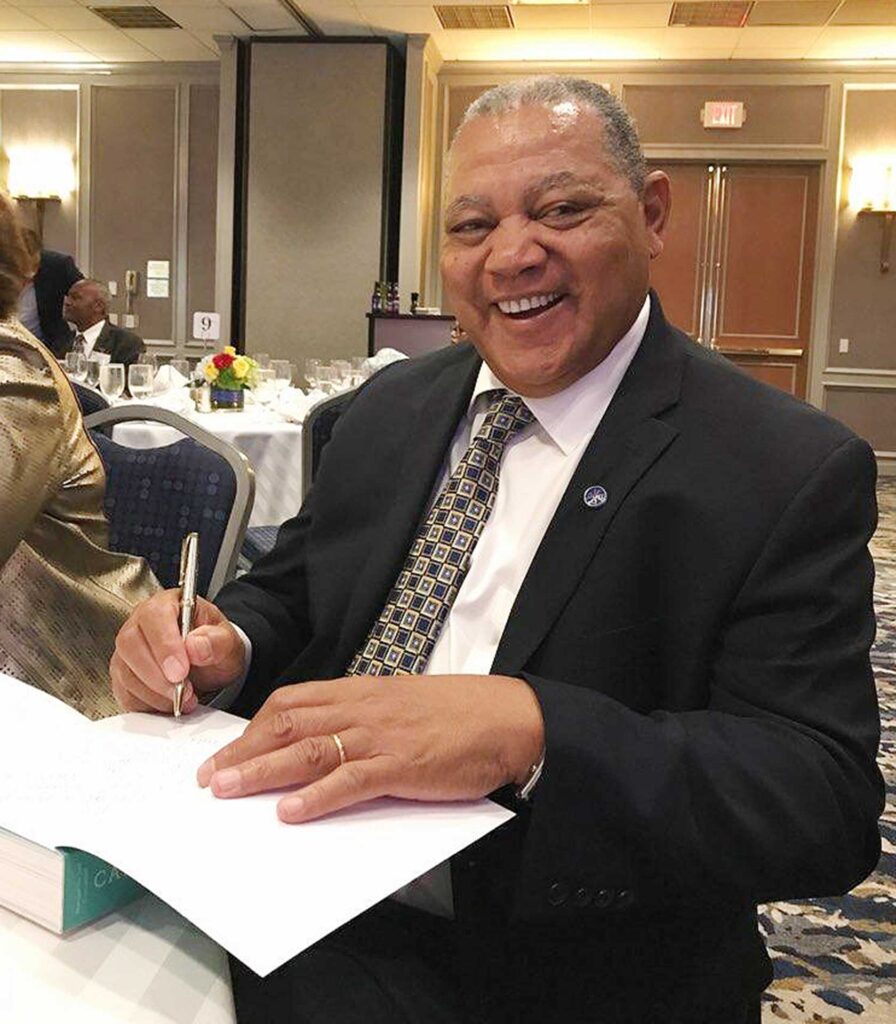
Manuel Da Luz Gonçalves received corporal punishment in the 1960s for speaking his mother tongue at a Catholic seminary in what was then called Cape Verde.
Creole was even banned at recess during his colonial-era education. Students who dared speak the language, he said, were “punished spiritually and physically with palmatória,” a piece of wood used to strike them on the hand.
Now, splitting his time between Praia, the capital of the renamed Cabo Verde, and Boston, Gonçalves, 74, curates the written form for his once forbidden first language. His literary business in Roxbury plans to publish in February the most extensive English to Cape Verdean creole dictionary. The only other one known to exist, produced by the Peace Corps, defines fewer words.
The new dictionary, with 13,000 words, will contribute to formalizing a language based on a long and varied oral tradition, with the meanings of words stored in memories. The text will help native speakers, including immigrants, determine whether they are using the right English words.
Gonçalves’ business, Mili Mila, published a Cape Verdean creole to English dictionary that he authored in 2015. Last year, it produced a bilingual children’s book written by a relative of his, Josephine Tavares, whose penname is Djofa. An instructional app is also under development.
Tavares, a teacher at Russell Elementary School in Dorchester, said each dictionary is “stamping it into history,” referring to the language formally known as Kriolu Kabuverdianu.
Gonçalves’ own career as a teacher and guidance counselor with the Boston Public Schools began after immigrating in 1974. He taught in a bilingual program at South Boston High School before its relocation to Madison Park Technical Vocational and Jeremiah E. Burke high schools.
He drew inspiration from bilingual instruction in Haitian creole on the Caribbean island. He began teaching Kriolu classes in 1978. By 2003, Gonçalves had compiled an instructional textbook in the language from lessons he developed with a collaborator.
Before Cabo Verde’s independence in 1975, Kriolu was scattered into different variations on 10 islands. Without readily available roads, sea or air transit, “people were isolated, with the mountains,” Gonçalves said.
The version of Kriolu learned at home evokes intense loyalty. “People are conscious of their own language, and then they keep it in their heart,” he said.
Unresolved regional differences have previously frustrated linguistic systemization. Today, two variations persist.
Tavares, also a poet, described debates over the variations as “a roadblock. But, our idea is: You have to start somewhere.”
Gunga Tavares, the recently retired cultural attaché of the Cabo Verde consulate in Boston, said, “Language was part of the pride of independence.”
Cabo Verde’s constitution lists Portuguese and Kriolu as national languages, she said. But one clause designates the European one as the official language. Written documents for court, government and schools are in Portuguese. Cabo Verde only recently introduced instruction in Kriolu to tenth-graders. Speeches in parliament and politics often use the common tongue.
“All the communication at the consulate is done in [Kriolu],” Gunga Tavares said, while only official documents use Portuguese, so that diplomats from other countries can translate them.
“The language is so small, the country is so small, you can’t imagine having all your documents all written in Cape Verdean, and they don’t go anywhere,” she said. “That’s going to continue to be for a while.”
The language is spoken by Cabo Verde’s population of almost 600,000 and by migrants in the diaspora.
Nonetheless, Gunga Tavares sees progress since 1975. “It’s not mandatory for anyone to speak to you in Portuguese.” In contrast, she said, previously, “nobody could speak creole in public service.”
But Simmons University Professor Abel Djassi Amado said the consequences of Portuguese colonialism persist today through “social practices” that its government spread.
“The racial supremacy of the Portuguese people had a linguistic dimension,” he said.
After 1951, he said, Portugal’s society reimagined itself as pluralistic and multiracial, elevating Kriolu but seeing it only as a dialect.
“These days, obviously, there is no serious linguist” espousing that view, Amado said, because Kriolu is a “language in its own right. It’s fully autonomous.”
Claire Andrade-Watkins, a historian and filmmaker at Emerson College, sees the language as “the essence of our cultural identity.”
The Cape Verdean alphabet was not finalized until 2009. Ymez Silva, a poet who studied applied linguistics at UMass Boston, said the alphabet and spelling standards have been a “blessing,” since he thrives on structure and rules.
“Above all,” he said, “Kriolu needs to be made an official language in the country, along with Portuguese. Our children need to be taught first in Kriolu.”
Ambrizeth Lima, a three-decade professional with the Boston Public Schools, suggested the district create a dual-language program, where instruction occurs in Kriolu and English.
With dual language classes, Lima said, Cape Verdean students could receive the state’s Seal of Biliteracy on their diplomas. Denying them access to that, she said, raises equity concerns.
Another BPS educator, Ines Brito, also backs dual-language models. She said a new organization, ALMA CV, has been training teachers and writing curriculum in partnership with Cabo Verde’s Education Ministry.
Manuel Da Luz Gonçalves, who is producing the new dictionary, is an ALMA CV member. He saw a burst of activity last year around International Day of the Mother Tongue, enthusiasm he hopes will be sustained.
“It’s just the beginning. Hopefully, we’ll be doing great things here,” he said.








